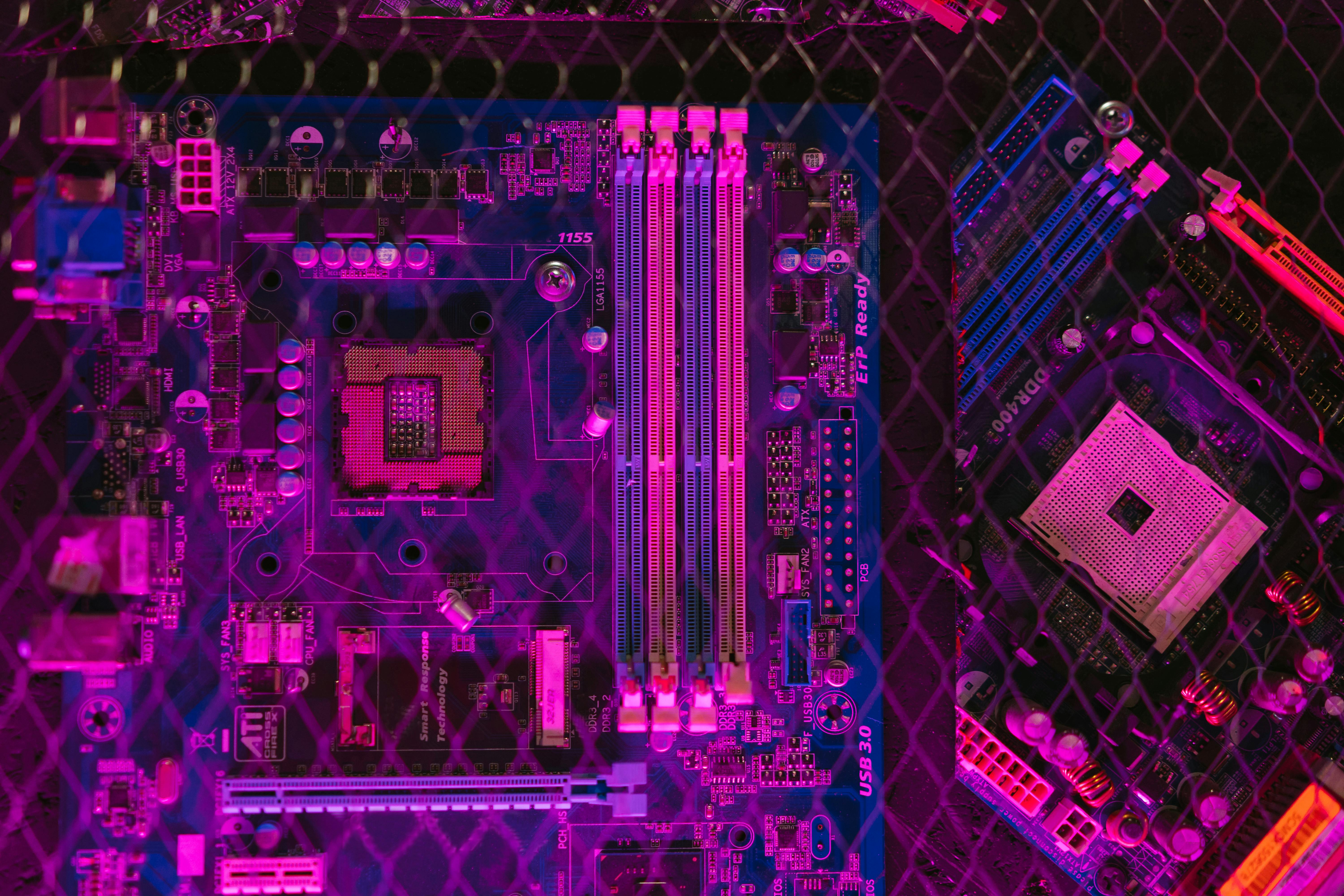From Chip War To Cloud War: The Next Frontier In Global Tech Competition

The global chip war, characterized by intense competition among nations and corporations for supremacy in semiconductor technology, has been a defining feature of the modern tech landscape. However, as the importance of cloud computing grows, a new battleground is emerging: the cloud war. This article explores the transition from the chip war to the cloud war, examining its implications for international relations, economic power, and technological innovation.
The Global Chip War: Background and Current Status
The chip war has its roots in the mid-20th century when the development of semiconductor technology began to revolutionize electronics and computing. Key players, such as the United States, China, South Korea, and Taiwan, have invested heavily in semiconductor manufacturing and research. Recent developments include the U.S. CHIPS Act, aimed at boosting domestic production, and China's substantial investments in its semiconductor industry to reduce reliance on foreign technology.
This competition has led to significant advancements in semiconductor technology but also created vulnerabilities in global supply chains. The COVID-19 pandemic exposed these weaknesses, causing widespread shortages and highlighting the need for more resilient supply networks.
The Emergence of the Cloud War
As cloud computing becomes increasingly integral to modern technology, the focus is shifting from semiconductors to cloud infrastructure. Cloud computing provides the backbone for various applications, including artificial intelligence (AI), big data, and Internet of Things (IoT) technologies.
The strategic importance of cloud infrastructure lies in its ability to store, process, and analyze vast amounts of data essential for AI development. Major investments in cloud infrastructure by tech giants like Amazon (AWS), Microsoft (Azure), and Google (Google Cloud), as well as significant initiatives by Chinese companies like Alibaba Cloud, Tencent Cloud, and Huawei Cloud, illustrate this shift. Additionally, Europe's efforts to develop independent cloud infrastructure, such as the GAIA-X project, signify the region's desire to secure its digital sovereignty.
Key Players in the Cloud War
Several countries and corporations are leading the charge in the cloud war:
- United States: Dominated by AWS, Microsoft Azure, and Google Cloud, the U.S. has established a strong position in the global cloud market.
- China: Alibaba Cloud, Tencent Cloud, and Huawei Cloud are rapidly expanding their reach, supported by significant government backing.
- Europe: The GAIA-X initiative aims to create a secure and federated data infrastructure for Europe, reducing dependency on non-European cloud providers.
Emerging players and potential disruptors in the cloud market, such as regional providers and innovative startups, are also gaining traction, contributing to a dynamic and competitive environment.
Security Concerns and Geopolitical Implications
Security hawks in Washington have expressed concerns about the risks associated with foreign cloud infrastructure deals. Reliance on foreign cloud providers for critical AI infrastructure poses potential risks, including data breaches, espionage, and loss of control over sensitive information.
Geopolitically, cloud dominance can influence national security and economic stability. Data sovereignty issues and the need for secure data storage and processing have become paramount. To mitigate these risks, countries are developing strategies to ensure that cloud infrastructure remains under national control or adheres to stringent security standards.
Economic and Technological Impacts
The cloud war has significant economic implications, affecting global markets and industries. The cloud market is projected to continue its rapid growth, driving economic activity and creating new opportunities for businesses.
Cloud infrastructure is crucial for accelerating AI innovation and adoption. The competition in the cloud space fosters technological advancements, improving AI capabilities and applications. Case studies of industries transformed by cloud-based AI solutions, such as healthcare, finance, and manufacturing, demonstrate the far-reaching impact of this technology.
Future Outlook and Strategic Recommendations
Looking ahead, the cloud war is expected to intensify, with major players continuing to invest in expanding their infrastructure and capabilities. To navigate this competitive landscape, policymakers, businesses, and tech leaders should consider the following recommendations:
- Develop robust cybersecurity measures to protect cloud infrastructure and data.
- Foster international cooperation to establish regulatory frameworks and standards for cloud services.
- Encourage innovation and competition within the cloud market to drive technological advancements.
- Promote balanced growth that ensures both economic benefits and national security.
Conclusion
The transition from the chip war to the cloud war signifies a new era in global tech competition. As cloud infrastructure becomes increasingly vital for AI development, the strategic importance of securing and managing this technology cannot be overstated. By fostering a balanced approach to competition and cooperation, countries and corporations can navigate the challenges of the cloud war and unlock its potential benefits.
Author: Brett Hurll
The High Stakes Of Tech Regulation: Security Risks And Market Dynamics
The influence of tech giants in the global economy continues to grow, raising crucial questions about how to balance sec... Read more
The Tyranny Of Instagram Interiors: Why It's Time To Break Free From Algorithm-Driven Aesthetics
Instagram has become a dominant force in shaping interior design trends, offering a seemingly endless stream of inspirat... Read more
The Data Crunch In AI: Strategies For Sustainability
Exploring solutions to the imminent exhaustion of internet data for AI training.As the artificial intelligence (AI) indu... Read more
Google Abandons Four-Year Effort To Remove Cookies From Chrome Browser
After four years of dedicated effort, Google has decided to abandon its plan to remove third-party cookies from its Chro... Read more
LinkedIn Embraces AI And Gamification To Drive User Engagement And Revenue
In an effort to tackle slowing revenue growth and enhance user engagement, LinkedIn is turning to artificial intelligenc... Read more
OpenAI And Broadcom Collaborate On New AI Chip To Boost Computational Power
OpenAI and Broadcom are reportedly in discussions to co-develop a new AI chip. This strategic partnership aims to enhanc... Read more

